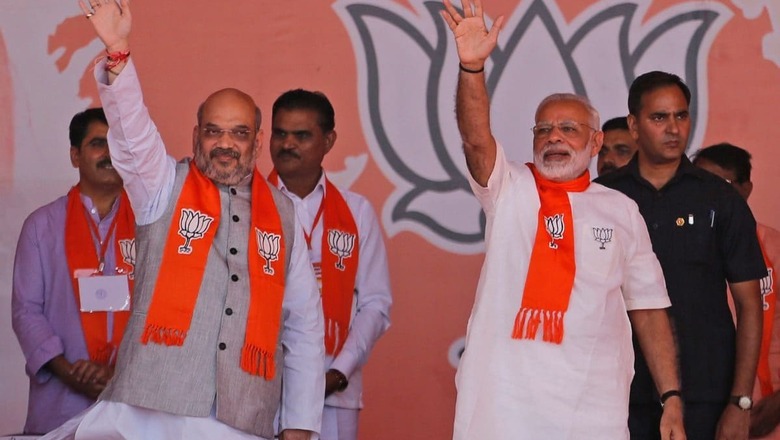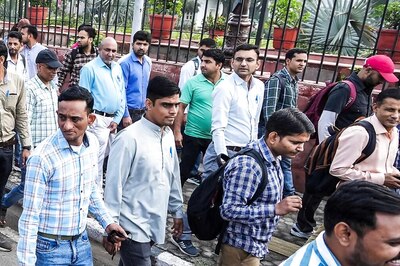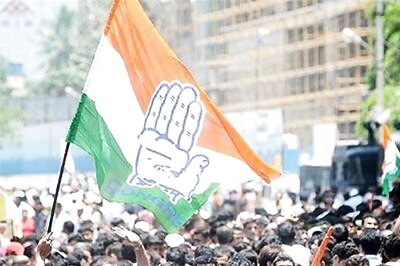
views
Idealists tend to know a lot about politics without understanding it. Just as a gardener may know a lot about flowers but not where to place a vase in a hall.
For an idealist, the goal of politics is change. It is not. For the pragmatist, the goal of politics is power. If one stays long enough in power, things change. Even without dramatic measures, things often change to the desire of the one in power. Changes made during a hurried stint with power are usually short-lived. But changes brought about while being in power for decades or centuries can be stubbornly difficult to reverse.
Between seven emperors from Babur to Bahadur Shah I, the Mughals ruled from Delhi for less than 175 years. The British ruled all of India for 89 years. But together, they managed to make a civilisation develop deep apologia and amnesia about nine or ten glorious millennia of its history.
Seventy years of the Congress establishment made Indians believe that only one dynasty was responsible for giving them freedom, that socialism was in our DNA, and that secularism must be one-sided.
Thirty-four years of Communist rule in Bengal and 12 of Mamata Banerjee’s TMC have combined to make Bengalis forget that they were once skilled and ambitious entrepreneurs or that Hindus of the land suffered waves of genocide, dispossession and displacement.
That is the power of staying in power. And to stay in power, one must be ready to use pragmatism, sometimes in its most unpalatable forms.
Churchill and Roosevelt had to hold their noses and ally with Stalin to stop Hitler. In prison, Nelson Mandela learnt the language of the oppressor, Afrikaans, and befriended the racist, white wardens to achieve his larger goal. And Saudi and UAE are more than passing the hummus with Israel dropping their Islamist idealism over Palestine.
So, why can’t the BJP ally with a section of NCP — most possibly with the blessings of its crafty patriarch Sharad Pawar — in spite of calling the party irredeemably corrupt till a few hours ago?
Most of its supporters — people for whom its fiery call of nationalism and steadfast stance against corruption made it a party with a difference — are sad and annoyed. They are too familiar with these machinations in politics. They had not expected this.
But while keeping its core leadership clean, the BJP under Narendra Modi and Amit Shah has placed a fair bit of weightage on winnability. It welcomed extremely effective leaders like Himanta Biswa Sarma and Suvendu Adhikari in spite of accusations of corruption against them.
A senior RSS leader once said in a private chat: “They don’t change us. We change them.”
Behind this stress on winnability is a bigger instinct at play: one has to last in power to make lasting changes, achieve long-term goals, and leave a mark in history.
With the Shiv Sena in Maharashtra split and the Congress weakened, allying with a powerful section of the NCP gives the BJP a strong headstart for the Lok Sabha and Assembly elections in 2024. It keeps current CM Eknath Shinde in check and in no position to blackmail his alliance partner.
For the ageing and ailing Sharad Pawar, his family remains in power through his nephew while his daughter gets a clean runway to leadership in the party. Also, he understands that the BJP is here to stay for long. It is a good ally to have.
Modi’s BJP does not stop at planning for 2024 or even 2029. It looks at 2034 and beyond and wishes to hold the leash of power when India completes a hundred years of freedom in 2047.
One may call it absurd and wishful. The BJP’s deft moves on the ground, its cynically cold Maharashtra offensive after losing Karnataka and Himachal prove that its seemingly outlandish dream of staying on and on in power is tethered to the steel post of pragmatism.
Abhijit Majumder is a senior journalist. The views expressed in this article are those of the author and do not represent the stand of this publication.



















Comments
0 comment